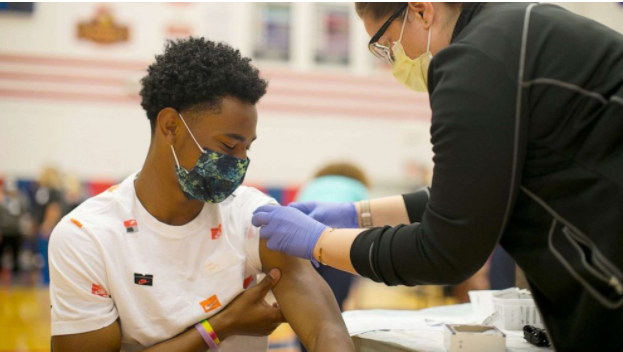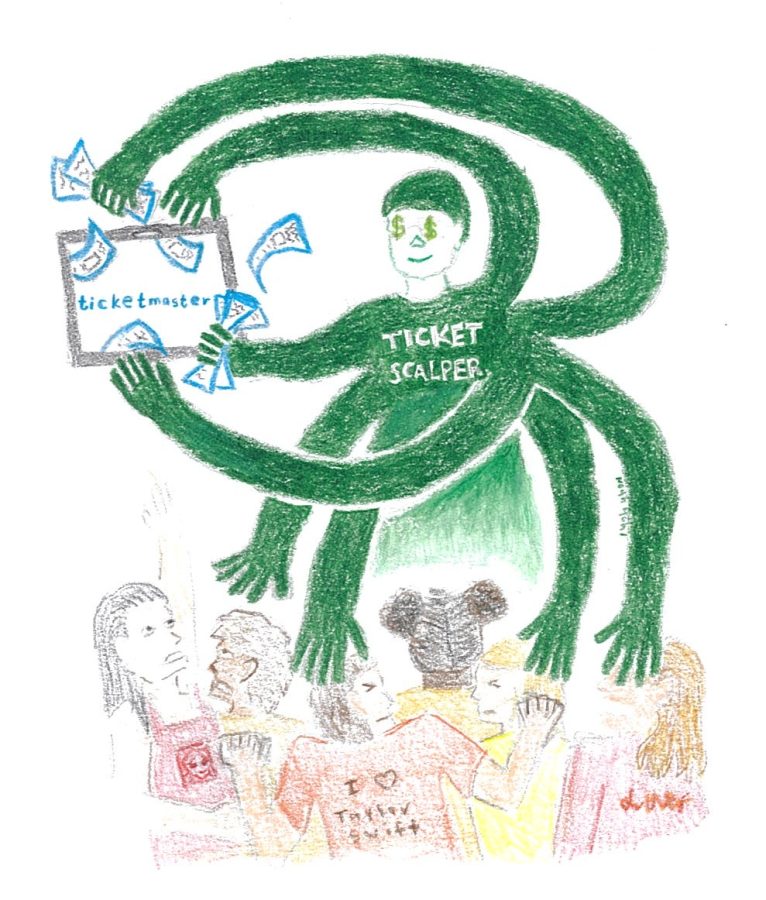The COVID-19 vaccine has caused a lot of changes in the workplace, but with the vaccine becoming increasingly available for Ohioans, there are mixed feelings. Everyone wants things to get back to normal, but there is some disagreement about how to get there. Many workers are eager to get the shot, while others are a little more hesitant, and there’s an ongoing debate regarding if anyone can be required to do so.
Karlee Michel has taught Spanish at Westerville North for eight years and got the COVID vaccine when it became available for teachers.
“I just got my second dose right before we came back for “All N.” I wasn’t hesitant because I was afraid of it, I was hesitant because I’m young and capable and healthy, but then I got COVID and realized I was not healthy or capable. That pushed me to get it as soon as it was available,” Michel said.
Paige Miracle is a junior at Westerville North and works at Sunny Street Cafe in Westerville, a busy restaurant where workers are always aware of the possibility of being exposed to COVID by guests.
“I have not gotten the vaccine yet, but I do plan on getting it as soon as I can. I am not really worried about getting the vaccine just because there has been a lot of testing and it seems like it is working,” Miracle said.
Jeff Long is a project manager for Ohio Means Jobs, a company that specializes in Ohio workers.
“I am not nervous. The chance of me having serious side effects is very small,” Long said.
Most Ohio workers seem to be open to getting the vaccine, but those who are hesitant wonder if they can legally be required to do so in their workplace.
Some Ohioan employers want to require their workers to get the vaccine, with only limited exceptions due to medical reasons or deep religious beliefs. These exceptions would be individually assessed, and if the employer deems their request invalid, they must assess if that unvaccinated worker may increase the risk of infection for themselves or others. If they do, the employer should provide any available accommodations, such as working from home. If this is unfeasible, many agree employers do have the right to terminate these employees, although this is currently an issue that has pending legislation and continues to be disagreed upon.
“I know some places require a flu shot, but this is a little more intense than a flu shot, I would say because it’s so new, it should not be forced on anybody who doesn’t want it, but maybe in the future if it’s still needed, then individual businesses can make that decision for their employees,” Michel said.
Others view employers requiring the vaccine as greatly beneficial and even necessary to stop the spread of COVID-19.
“Being required to get the vaccine if you are working is not a bad idea. It limits the chance of you getting COVID-19 from someone who is positive coming into your workplace and then passing it on to you,” Miracle said.
“An individual’s employment with their employer is a contractual agreement between the two parties. As such, I believe that employers have the right to require their employees to be vaccinated. Especially since COVID-19 is highly contagious, it’s for the good of the company and public health in general,” Long said.
However, there is some grey area regarding if employers should fire those who refuse the vaccine.
“I think that’s wrong, especially in a pandemic when we’re all struggling anyway. I don’t think anyone should be forced to do anything medically unless it was absolutely dire to the health of the entire human race and it was critical right then,” Michel said.
Miracle agreed, saying firing employees who refused to get the vaccine was a stretch.
However, some believe there are certain cases where employers firing those who refuse to get the shot is necessary for public health, therefore their actions are well-founded.
“It really depends on the circumstances. I believe that if the type of work requires frequent contact with customers or coworkers and the employer made a reasonable effort to accommodate a non-vaccinated person, but it could not be done, then the employer has the right to fire or lay off the individual,” Long said.
Although there is disagreement about whether or not employers should fire workers who refuse the vaccine, the vast majority of Ohioans agree that anyone who is eligible for the vaccine should do so when it becomes available to them.
“Having gotten it I realized it was not as bad as people say or think. Everyone has a different experience with it, but since I had COVID and then I got the vaccine, the reactions from the vaccine were nothing compared to [actually having] COVID,” Michel said.
“I believe that everyone who is eligible for the vaccine should get it. By doing this, we can hopefully speed up the process of COVID-19 ending,” Miracle said.
“I understand that there is a fine line between looking out for the public and infringing on individuals’ rights, but in this case, I side with looking out for one another, the public good,” Long said.





































